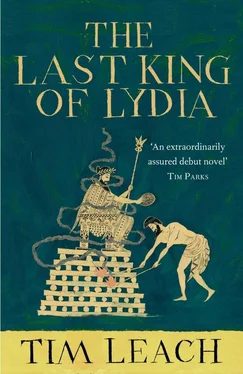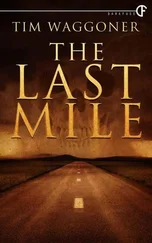Tim Leach - The Last King of Lydia
Здесь есть возможность читать онлайн «Tim Leach - The Last King of Lydia» весь текст электронной книги совершенно бесплатно (целиком полную версию без сокращений). В некоторых случаях можно слушать аудио, скачать через торрент в формате fb2 и присутствует краткое содержание. Год выпуска: 2013, ISBN: 2013, Издательство: Atlantic Books Ltd, Жанр: Исторические приключения, на английском языке. Описание произведения, (предисловие) а так же отзывы посетителей доступны на портале библиотеки ЛибКат.
- Название:The Last King of Lydia
- Автор:
- Издательство:Atlantic Books Ltd
- Жанр:
- Год:2013
- ISBN:9780857899200
- Рейтинг книги:5 / 5. Голосов: 1
-
Избранное:Добавить в избранное
- Отзывы:
-
Ваша оценка:
- 100
- 1
- 2
- 3
- 4
- 5
The Last King of Lydia: краткое содержание, описание и аннотация
Предлагаем к чтению аннотацию, описание, краткое содержание или предисловие (зависит от того, что написал сам автор книги «The Last King of Lydia»). Если вы не нашли необходимую информацию о книге — напишите в комментариях, мы постараемся отыскать её.
The Last King of Lydia — читать онлайн бесплатно полную книгу (весь текст) целиком
Ниже представлен текст книги, разбитый по страницам. Система сохранения места последней прочитанной страницы, позволяет с удобством читать онлайн бесплатно книгу «The Last King of Lydia», без необходимости каждый раз заново искать на чём Вы остановились. Поставьте закладку, и сможете в любой момент перейти на страницу, на которой закончили чтение.
Интервал:
Закладка:
‘I would have thought,’ Croesus said, ‘that when some foreigner marches an army on to your land, custom would be the last thing on your mind. Why not wait, make us pursue him?’
‘He wants this settled as much as you do. It shames him to have us on his land.’
‘Yes, I suppose it does.’ The king rubbed his jaw. ‘What do you know about this Cyrus?’
‘I know much about his army. Little about him.’
‘A pity. Everyone has a different story. They are good ones, too. Raised by wolves, some say, others say by farmers. I wonder how that confusion began. There were half a dozen prophecies foretelling his birth and it is said his line will rule for nine generations. Do you believe any of that?’
‘I could not say, my lord.’
‘Well, I would like to know the truth of it. I wish they told such stories about me,’ Croesus said. ‘I suppose it does not matter. What happens now?’
‘We make the men eager to fight.’
‘And how do we do that?’
Over the weeks that followed, Croesus watched his army pass over the land like a walking catastrophe, an earthquake of a hundred thousand feet.
The land alone could not sustain them, so unnaturally large was the gathering of men, and they descended on every farm, village and town and took the food that they needed. They were, Croesus thought, as capricious as the Gods. One family of farmers would be greeted kindly by the passing soldiers. The fighting men would play with the children, and their officers would communicate, by gesture and the odd word of common language, their needs to the farmers. Sometimes they would leave gifts in compensation for food and wine. At the next farm, the same men would take the crops by force, carry off the women and young boys and torture the men to death for sport. There was no pattern to it.
Croesus understood that they took crops and cattle because they would starve if they did not. Why they murdered men and raped women was more mysterious to him. Perhaps, he thought, it was because they had to learn that they were powerful in this foreign land, that they were not bound by the laws that had ruled them before. Perhaps even as they fed themselves and learned how to kill, they knew that there was something else expected of them soon, that their killings were but rehearsals for a greater slaughter. No one would remember the villages and small towns that they destroyed. Through the thousands of little murders the army committed, there grew a desire to do something unforgettable; something that would mark the conquered land as theirs.
This collective dream grew strong and yet remained unfulfilled until they came at last to the city of Pteria.
They destroyed the army that guarded the city. They broke open the gates and tore holes in the walls. Then, that night, for the very first time, Croesus watched a city being razed to the ground.
Now that darkness had fallen, he could not see the people running in the streets, nor the soldiers who pursued them. He only saw fire — enormous, angry lakes of flame where palaces, temples, and entire districts of houses had once stood — and the tiny, moving points of light of men with torches. It was as though he observed a city from another world, where flames had become sentient and built a city of their own.
‘What do you think they are doing over there?’ he asked his general.
‘They are doing what I ordered them to do,’ Sandanis replied.
‘Which was?’
‘Enjoy themselves.’ Croesus winced, and the general smiled patiently. ‘It needn’t concern you,’ Sandanis said. ‘It is what happens.’
‘It makes me think of my home. Don’t you?’
‘Yes, of course.’
‘How does that make you feel?’
‘I’m glad it is happening to their home and not to mine.’
‘Nothing more than that?’
The general shrugged. ‘They had bad fortune. The Gods didn’t favour them. They were weak. That is what I think.’
The king nodded, but did not reply. He looked back on the city of fire.
He imagined what was being done in the distant streets. The men tortured and killed, the women raped. The elderly and the children put to death, there being no value in their capture. Everything of value taken, every sacred building put to the torch.
In the morning, there would be a great gathering at the blackened gates of the city. The healthy men and women, roped together like unruly cattle, would be marched back west and sold. All that would remain of Pteria was in their memories and in the stories they would tell. He wondered how many generations would pass until the memory of the place faded entirely.
He could feel, somewhere half hidden within his mind, a sense of shame. The emotion was close but could not reach him, as if it did not belong to him at all and merely lurked in his mind, misplaced by some other, more feeling man. He wondered where it came from, this barricade in his mind that meant he felt nothing, and whether it was the mark of a strong, ruthless king, or of some kind of monster.
‘It doesn’t make me feel anything, you know,’ Croesus said. ‘Isn’t that strange?’
‘Why should it?’
Croesus shook his head. ‘You are lacking in imagination, Sandanis.’
‘That may be so, my lord.’
‘You may leave.’
The general bowed.
‘The reports are confirmed. The Persian army is coming. They will be here in ten days.’
‘Good. How do we respond?’
‘We wait, and we meet them here. It is as good a place as any to fight a battle. The sight of the city will act in our favour.’
‘I knew we destroyed it for some reason.’ He tried a smile, but the general did not respond. ‘Will the Ionians remain loyal?’
‘Yes. My people tell us that they refused Cyrus’s offer last night.’
‘Very well. I am glad the waiting is over, at least.’
‘Yes, my lord.’
Croesus hesitated. ‘These things are necessary in war, you said?’
‘Inevitable, my lord.’
‘Very well. Let the men do what they will tonight. But tomorrow, you will get them ready to meet the Persians. I would rather see a battle than butchery.’
Sandanis raised an eyebrow. ‘Say that again after you have seen battle.’ He bowed again. ‘Goodnight, my lord. Sleep well.’
It was on the tenth day of waiting, sometime after midday, that the Persian army came into view.
Croesus’s scouts had kept careful track of its progress, and so when the Persians arrived, they found the Lydian army arrayed to meet them. Each army was a reflection of the other, and for hours, they shifted across the plains like mirror images. The two armies shuffled from side to side, moving from one place to another, each army taking it in turns to offer a position to its opponent that was declined. After a time, seeing that their opponents would not be deceived into assuming a weak position on the battlefield, both armies gave up trying to gain an advantage. They simply tried to settle on a part of the plain where they could face each other, a place where a hundred thousand men could line up in order and kill one another.
At last, after hours of manoeuvring, they reached a position with which both were satisfied. Having negotiated silently, they were ready to exchange words, and Croesus’s emissary came to him to request his final instructions.
‘If they want us to return to Lydia,’ Croesus told him, ‘they must disband their army immediately, reinstate the royal family of the Medes, and Cyrus must surrender himself personally to me.’ He turned to Sandanis. ‘Will that be enough?’
‘I should think each one of those demands unacceptable enough on its own.’
‘Let us see how they respond to three impossibilities. Oh,’ he said, turning back to the emissary. ‘One more thing.’
Читать дальшеИнтервал:
Закладка:
Похожие книги на «The Last King of Lydia»
Представляем Вашему вниманию похожие книги на «The Last King of Lydia» списком для выбора. Мы отобрали схожую по названию и смыслу литературу в надежде предоставить читателям больше вариантов отыскать новые, интересные, ещё непрочитанные произведения.
Обсуждение, отзывы о книге «The Last King of Lydia» и просто собственные мнения читателей. Оставьте ваши комментарии, напишите, что Вы думаете о произведении, его смысле или главных героях. Укажите что конкретно понравилось, а что нет, и почему Вы так считаете.












